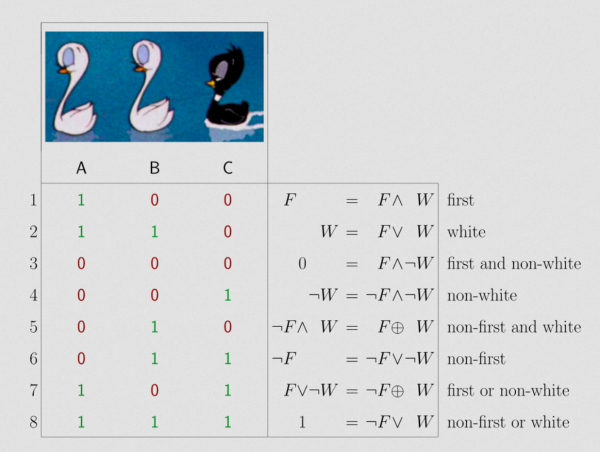The ugly ducking theorem has relevance for all efforts at organization.
https://en.wikipedia.org/wiki/Ugly_duckling_theorem
Put simply, it states that all categorization systems are fundamentally arbitrary, once all possible attributes are considered.
It's basically "proof" that common sense is contextual. For me it shows that you need to deeply engage with the people who need to find (and return) the stuff, and always include "uncategorized" for the stuff that slips between the perfect system.
#informationArchitecture
https://en.wikipedia.org/wiki/Ugly_duckling_theorem
Put simply, it states that all categorization systems are fundamentally arbitrary, once all possible attributes are considered.
It's basically "proof" that common sense is contextual. For me it shows that you need to deeply engage with the people who need to find (and return) the stuff, and always include "uncategorized" for the stuff that slips between the perfect system.
#informationArchitecture


Doug Webb •
As much as I love tags (and I really do) nested folders are not going any time soon. Full-text search is, thankfully, getting good in more and more places.
Very interested to chat more on this topic.
Kat •
Like many things in this area, I need to write commentary about it.
William Pietri •